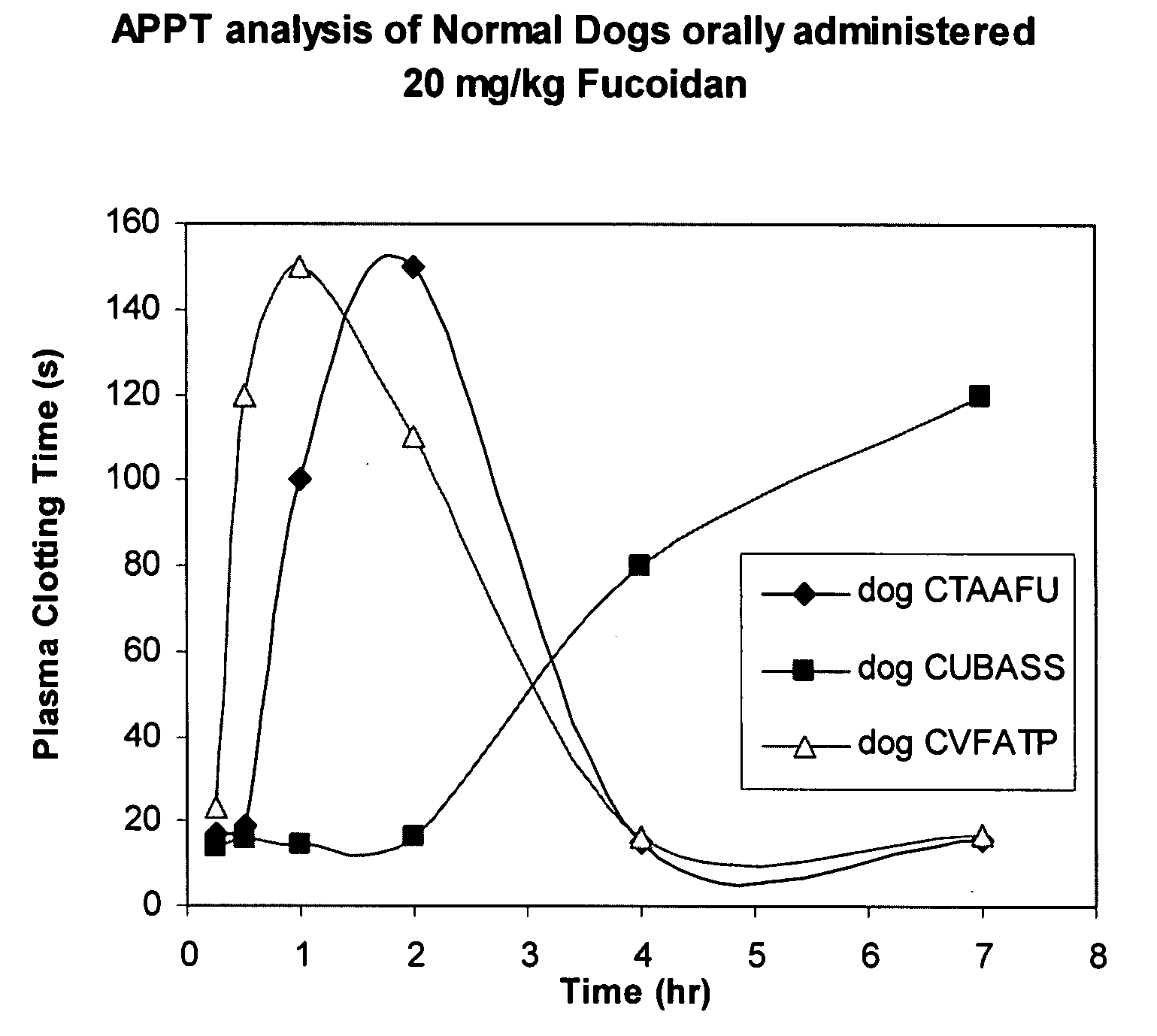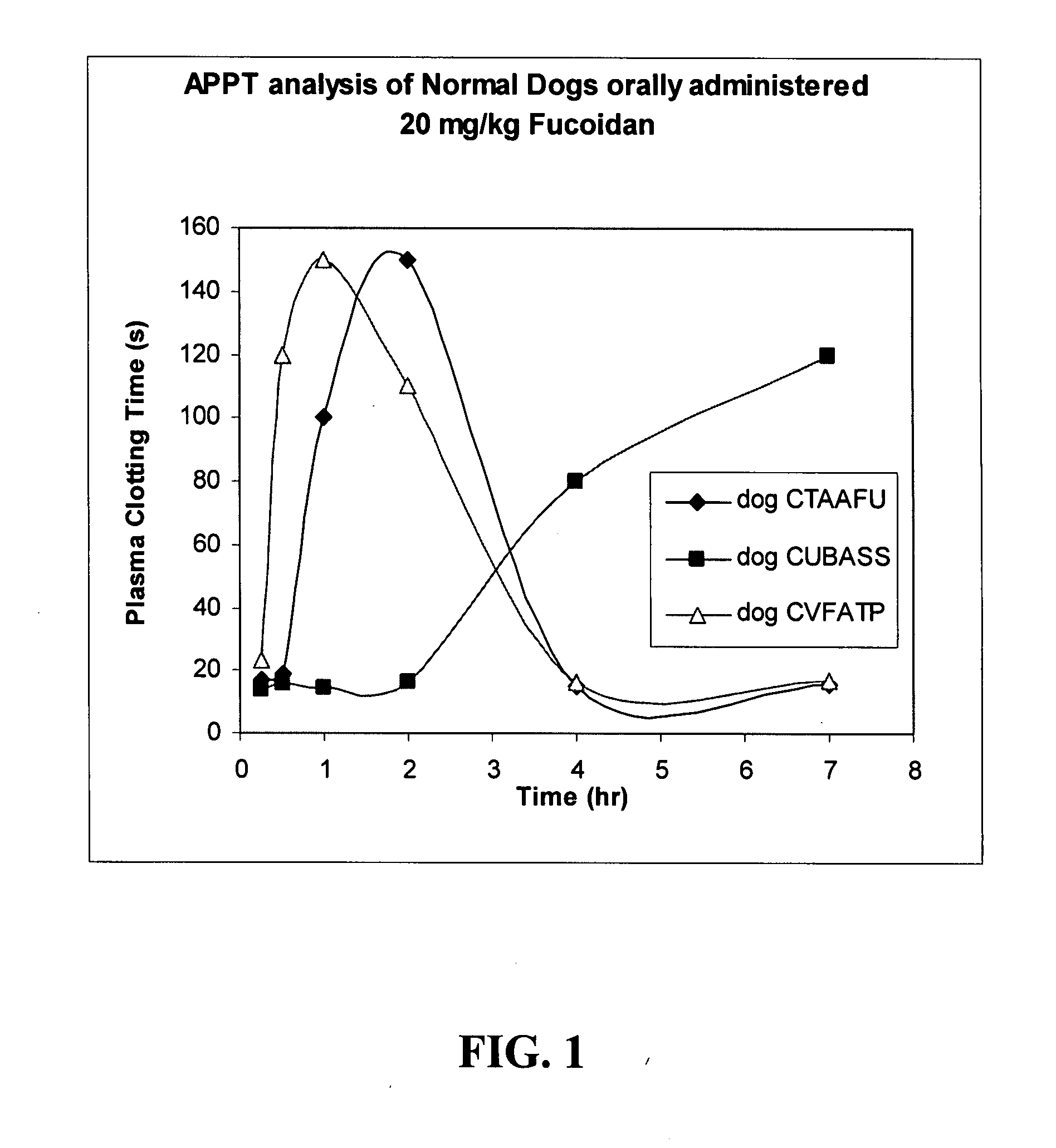Method for treating thrombotic disorders using sulfated polysaccharides
a sulfated polysaccharide and thrombotic disorder technology, applied in the field of thrombotic disorders, can solve the problems of warfarin requires frequent laboratory monitoring and dosage adjustment, and possesses a narrow therapeutic index. , to achieve the effect of prolonging the clotting time and prolonging the blood coagulation tim
- Summary
- Abstract
- Description
- Claims
- Application Information
AI Technical Summary
Benefits of technology
Problems solved by technology
Method used
Image
Examples
example 1
In-Vivo Evaluation of Anticoagulant Activity of Fucoidans Upon Administration to Healthy Beagle Dogs
[0129]The following study was performed to examine the oral anticoagulant activity of an exemplary fucoidan composition in beagle dogs using clinically-based clotting assays. Both the aPTT and dPT assays were conducted on plasma samples withdrawn at multiple time points during the study.
[0130]Three normal beagle dogs were used for the study. Each animal was administered one single fucoidan oral dose (20 mg / kg or 5 mg / kg) delivered as a powder in gelatin capsules (size “0”), with a one week washout period between dosings.
[0131]Clinical observations were performed up to 7 hours post-fucoidan dosing. Plasma samples were collected (titrated whole blood, plasma isolation) at pre-dose, 15 min, 30 min, 1 hr, 2 hr, 4 hr, and 7 hr post-fucoidan administration. Plasma samples were stored at −20° C. prior to testing.
[0132]The assay results (in duplicate) are provided for each of dogs #1-3 below....
PUM
| Property | Measurement | Unit |
|---|---|---|
| clotting time | aaaaa | aaaaa |
| MW | aaaaa | aaaaa |
| molecular weights | aaaaa | aaaaa |
Abstract
Description
Claims
Application Information
 Login to View More
Login to View More - R&D
- Intellectual Property
- Life Sciences
- Materials
- Tech Scout
- Unparalleled Data Quality
- Higher Quality Content
- 60% Fewer Hallucinations
Browse by: Latest US Patents, China's latest patents, Technical Efficacy Thesaurus, Application Domain, Technology Topic, Popular Technical Reports.
© 2025 PatSnap. All rights reserved.Legal|Privacy policy|Modern Slavery Act Transparency Statement|Sitemap|About US| Contact US: help@patsnap.com


